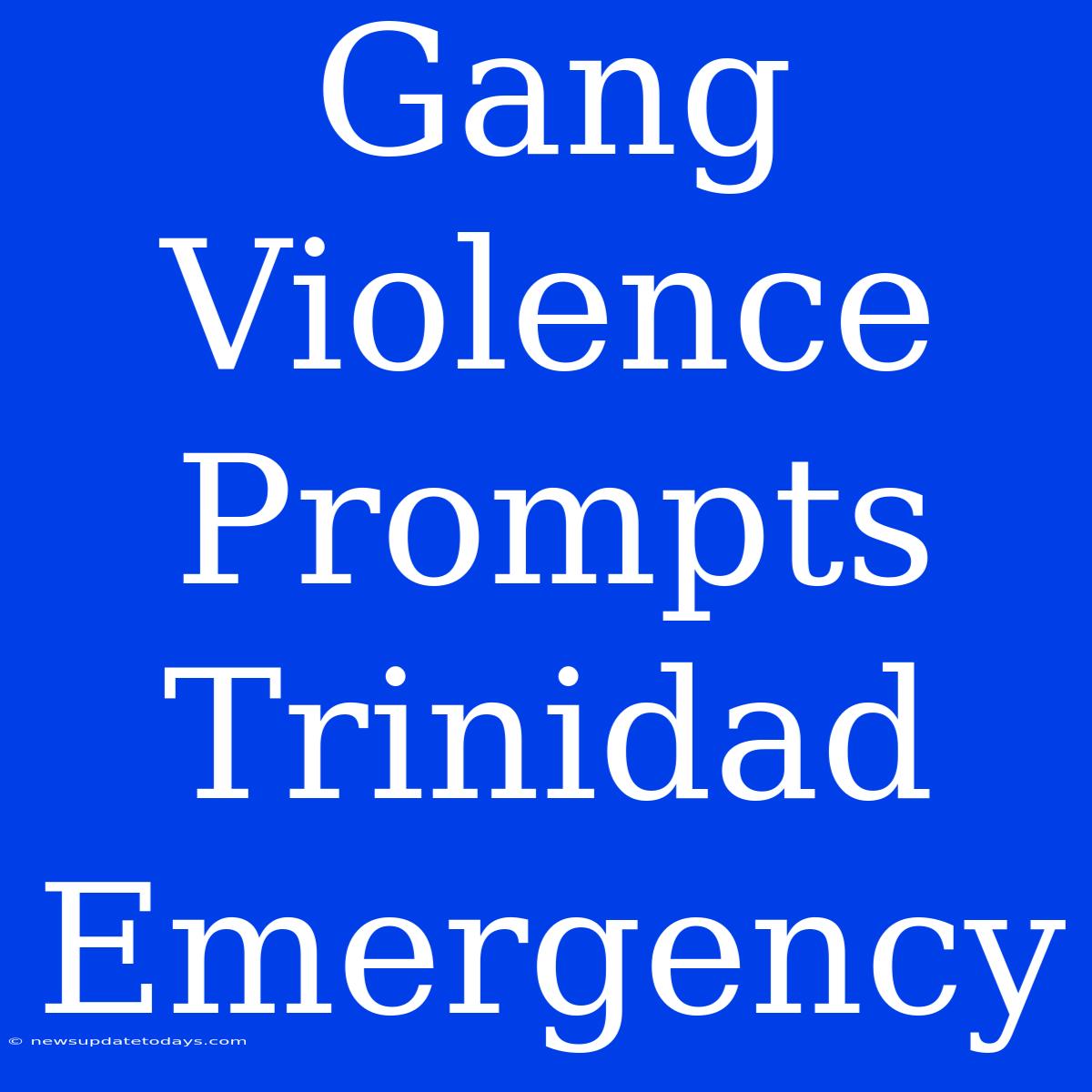Trinidad Emergency: Soaring Gang Violence Demands Urgent Action
Trinidad and Tobago is grappling with a surge in gang violence, prompting a state of emergency declared by the government. The escalating crime rate, fueled by warring factions and sophisticated criminal networks, demands immediate and comprehensive solutions. This article delves into the crisis, exploring its root causes, the government's response, and the potential paths towards lasting peace.
The Grim Reality: A Nation Under Siege
The recent spike in gang-related killings and shootings has sent shockwaves through the nation. Citizens live in fear, with daily life disrupted by the constant threat of violence. This isn't a new problem; Trinidad and Tobago has a long history of gang activity, but the current escalation is unprecedented, highlighting the urgent need for decisive action. The violence is not confined to specific areas; it's spreading, impacting communities and undermining the fabric of society.
Understanding the Roots of the Problem: More Than Just Guns
The current crisis isn't simply a matter of readily available firearms. While the easy access to weapons is undoubtedly a critical factor, deeper societal issues contribute to the problem:
- Socioeconomic Disparities: High unemployment, particularly among young people, fuels desperation and provides fertile ground for recruitment by gangs. Lack of opportunities leads to a sense of hopelessness, making gang membership seem like a viable, albeit dangerous, alternative.
- Lack of Opportunities: Limited access to education and vocational training further exacerbates the problem. Without pathways to legitimate employment and self-improvement, many young people feel they have no choice but to turn to gangs.
- Weak Governance and Corruption: Allegations of corruption within law enforcement and the judicial system undermine public trust and hamper effective crime-fighting efforts. A lack of accountability allows criminal networks to flourish.
- Inadequate Social Support Systems: Insufficient investment in community development programs and social support networks leaves vulnerable populations with limited avenues for help and rehabilitation. This creates a cycle of violence that is difficult to break.
The Government's Response: A State of Emergency
The government's declaration of a state of emergency represents a significant step, granting authorities expanded powers to address the crisis. These powers include increased police presence, curfews, and stricter controls on movement. However, the long-term effectiveness of such measures remains to be seen. Critics argue that a state of emergency alone is insufficient and that it may even exacerbate underlying issues if not accompanied by comprehensive social and economic reforms.
The Path Forward: A Multi-pronged Approach
Addressing Trinidad and Tobago's gang violence problem requires a multi-pronged approach that tackles both the immediate security concerns and the underlying social and economic factors:
- Strengthening Law Enforcement: Investing in better training, equipment, and intelligence gathering capabilities for law enforcement is crucial. This must be coupled with efforts to root out corruption within the police force.
- Addressing Socioeconomic Inequality: Creating jobs, improving access to education and vocational training, and investing in community development programs are essential to provide alternatives to gang life.
- Investing in Social Support Systems: Expanding mental health services, substance abuse treatment programs, and rehabilitation initiatives can help break the cycle of violence and provide support for those affected.
- Promoting Community Engagement: Fostering collaboration between law enforcement, community leaders, and residents is vital for building trust and creating a safer environment.
- Strengthening the Justice System: Improving the efficiency and effectiveness of the judicial system, ensuring timely prosecution of offenders and reducing corruption, will be critical in deterring crime.
The situation in Trinidad and Tobago is dire, but it's not hopeless. A comprehensive and sustained effort to address the root causes of gang violence, coupled with effective law enforcement, is essential for restoring peace and security to the nation. The current state of emergency is a necessary but insufficient step; true lasting change requires a holistic, long-term commitment to building a more equitable and just society.

